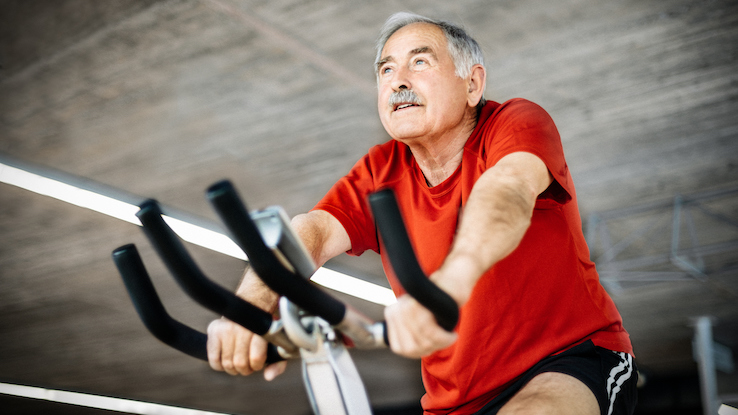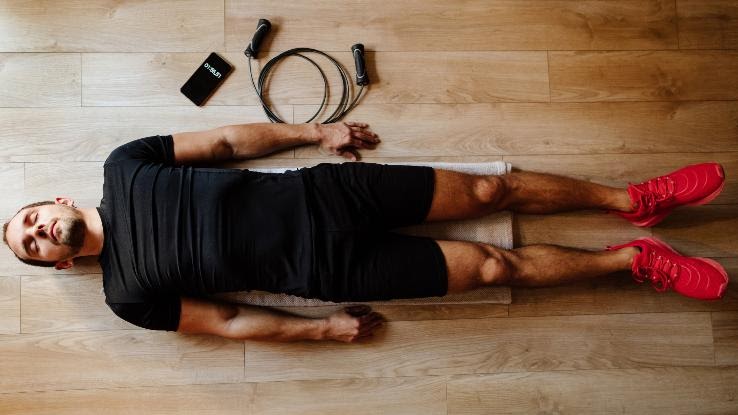Am I an Alumni if I Took Continuing Ed

Erectile dysfunction (ED) is a condition that leaves men unable to get or keep an erection for long enough to enjoy sex. If this sounds familiar, then rest assured that you're not alone — ED affects as many as 30 million men in the United States.
The good news is that there are effective treatments for ED. And lifestyle changes like getting more physical activity may help ease your symptoms. Join us for a look at ED remedy exercises that can help you protect your sexual health.

ED treatment often starts with finding out what's causing the problem in the first place. ED tends to be more common among older men, but it's not necessarily a natural part of the aging process. Several underlying health conditions and medical treatments can cause symptoms of ED, including:
- Diabetes
- High blood pressure
- Atherosclerosis (hardening of the arteries)
- Depression, anxiety and stress
- Radiation treatments or surgery on the bladder or prostate
- Certain prescription drugs, including some antidepressants and high blood pressure medicines
If you've recently experienced any new health issues or changes of medication, ask your doctor if these could be causing your ED. Treating your other conditions or changing your medications may solve the problem.
There are also several effective treatments just for ED, including prescription pills like Viagra. Your doctor can talk with you about the risks and benefits of prescription ED treatments, and help you make a treatment plan that's right for you.
Healthy lifestyle changes can also help with symptoms of ED, including eating healthy, quitting smoking and getting more regular exercise. And these healthy steps aren't just great for ED — they'll also improve your overall health.
What Types of Exercise Can Help with ED?

You know that regular physical activity is important for your health — but it can also make a big difference in ED symptoms. Research shows that two different types of exercise are effective ways to treat ED:
- Moderate-to-vigorous intensity aerobic exercise, like brisk walking, biking or swimming
- Kegel exercises to strengthen the pelvic floor
Regular aerobic exercise also has lots of other health benefits, including lower risk of heart disease and other serious conditions. It can also improve your mood, lower stress and help you sleep better at night.
Anything that gets your heart beating faster than normal is an aerobic activity. So if you don't like running or biking, there are lots of other options you can try. Even daily chores like raking the yard, walking the dog or carrying groceries home from the store can get your heart pumping and count toward your aerobic activity. Try to do things that will warm your body up, make you sweat and make you breathless enough that it's hard to have a conversation.
To help with ED symptoms, the latest research suggests that you get 40 minutes of aerobic activity, four times per week. But some activity is always better than none — so if you're just starting out, try taking a five-minute walk every day. Then build up to more aerobic activity over time. Aim to stick with your new exercise routine for at least six months to see the best results — and hopefully this will be the start of a new, long-lasting healthy routine.
Try Kegel Exercises to Treat ED

You may have heard of Kegel exercises, but what exactly are they? These types of exercises are specifically geared towards strengthening the muscles of your pelvic floor — and experts recommend trying them to ease ED symptoms.
The good news is that pelvic floor or Kegel exercises are very easy, and you can do them in just a few minutes a day. You may need to keep doing Kegels for several months before you notice the benefits.
The first step is to find your pelvic muscles. There are two easy ways to do this:
- While you're peeing, try to stop the flow of urine – the muscles you use to stop peeing are your pelvic muscles. Don't make a habit of trying to stop the flow of urine when you're peeing though as this can cause other health problems if you do it too often.
- Pretend you're trying to avoid passing gas — those are the same pelvic floor muscles that you use to stop peeing.
You may also notice your pelvic floor muscles tightening when you cough, sneeze or laugh.
Once you've located the right muscles, you can do Kegel exercises to build strength in your pelvic muscles by following these steps:
- Slowly squeeze and hold these muscles for three to five seconds while breathing normally.
- Relax again for three to five seconds.
- Repeat steps one and two (ideally up to 10 times).
You can then repeat this process at least three times a day, or as much as you like once you get the hang of it.
You can do these exercises lying down, sitting in a chair or standing up. Most people find it easier to lie down for Kegels when they're starting out.
Additional Tips and Tricks for ED Exercises

Take it easy to begin with, and remember you can always add more reps or increase the length of each squeeze as you progress. Follow these tips:
- Start slow. When you're just starting out, it's important not to overdo it. Start with just three sets of 10 squeezes (reps) on the first day, and build up to more gradually.
- Remember to breathe. Just as with any other exercise, it's important to remember to focus on maintaining your breathing. Fight the urge to hold your breath with each rep.
- Try to keep your stomach muscles relaxed to help isolate your pelvic muscles as much as possible.
- Remember to rest your muscles for at least a few seconds between each rep.
- Make them a part of your daily routine. Fitting in a set of Kegels while doing routine everyday tasks can help you to remember to do them regularly. This could be when you wake up and are lying in bed, just after urinating while getting rid of the last drops, or while you are brushing your teeth at the beginning and end of each day.
How can you tell if your new ED exercise routine is working? One of the easiest tests is to wait until you need to urinate. While going to the bathroom, attempt to stop the flow of urine midstream and hold it for a few seconds. The more you progress, the easier this should be to do.
While they may feel strange at first, Kegel exercises should not cause any pain. If you find yourself in pain at any point, then you may be dealing with something more serious. Stop doing the exercises and talk with your doctor to find out what's going on.
Resource Links:
- "5 Natural Ways to Overcome Erectile Dysfunction" via Harvard Health
- "The No-Drug Approach to Erectile Dysfunction" via Harvard Health
- "Kegel Exercises" via MedlinePlus
- "Kegel Exercises for Men" via Mayo Clinic
- "Physical Activity to Improve Erectile Function: A Systematic Review of Intervention Studies" via Sexual Medicine
- "Erectile Dysfunction: Exercise Could Be the Solution" via The Conversation
- "Kegel Exercises for Men" via UCLA Urology
Source: https://www.thehealthfeed.com/healthy-living/ed-remedies-exercises?utm_content=params%3Ao%3D1668962%26ad%3DdirN%26qo%3DserpIndex&ueid=9e8702fa-9804-4341-b62f-b9b094f7b042
0 Response to "Am I an Alumni if I Took Continuing Ed"
Post a Comment